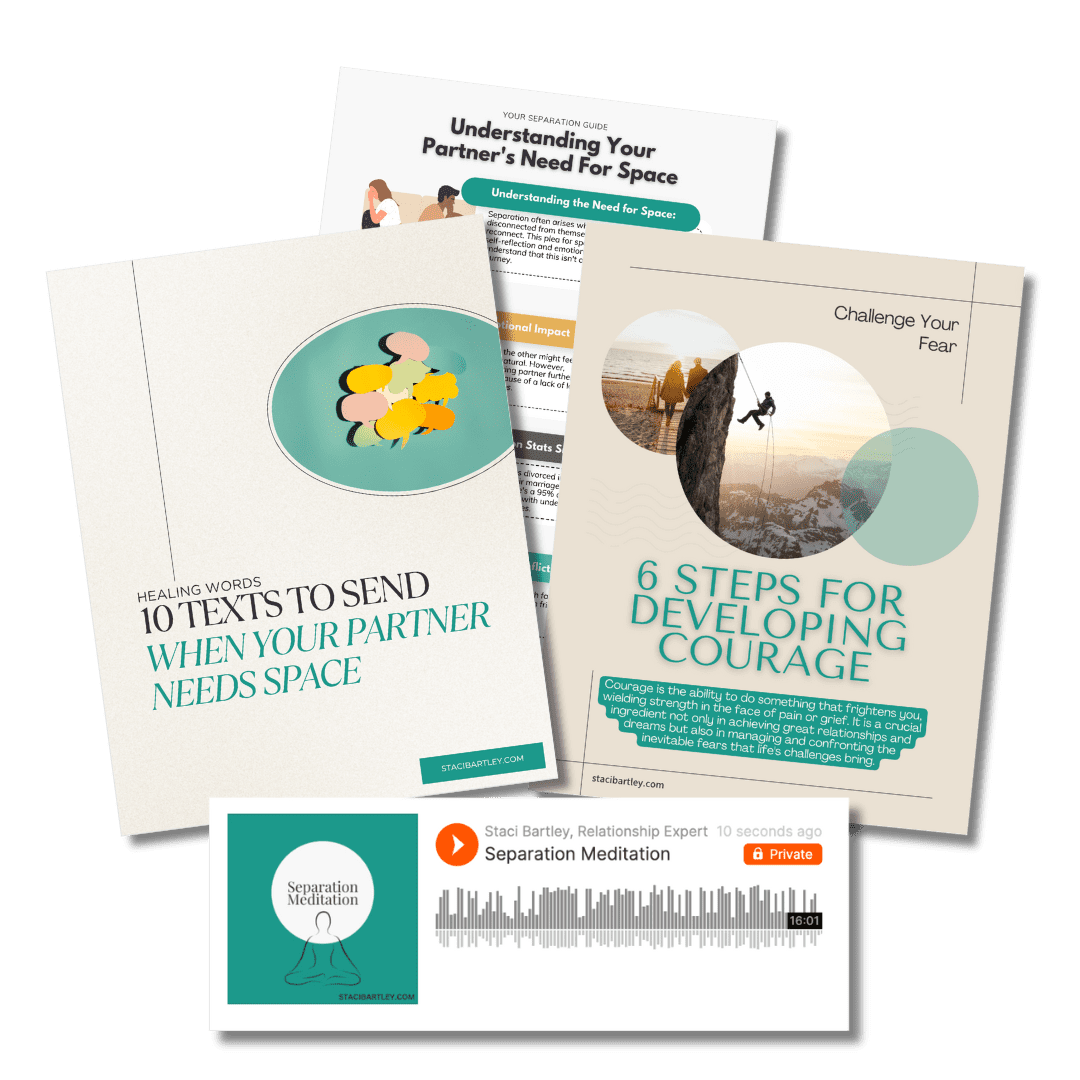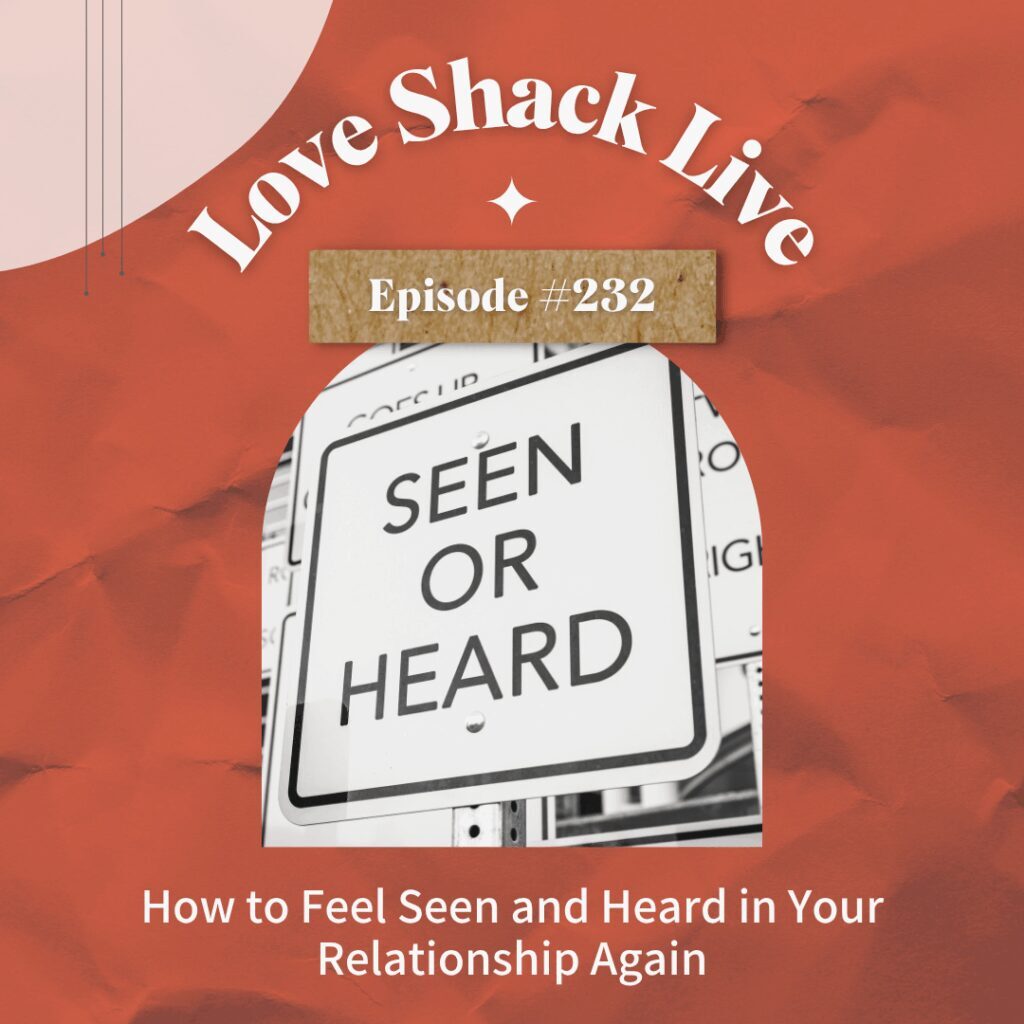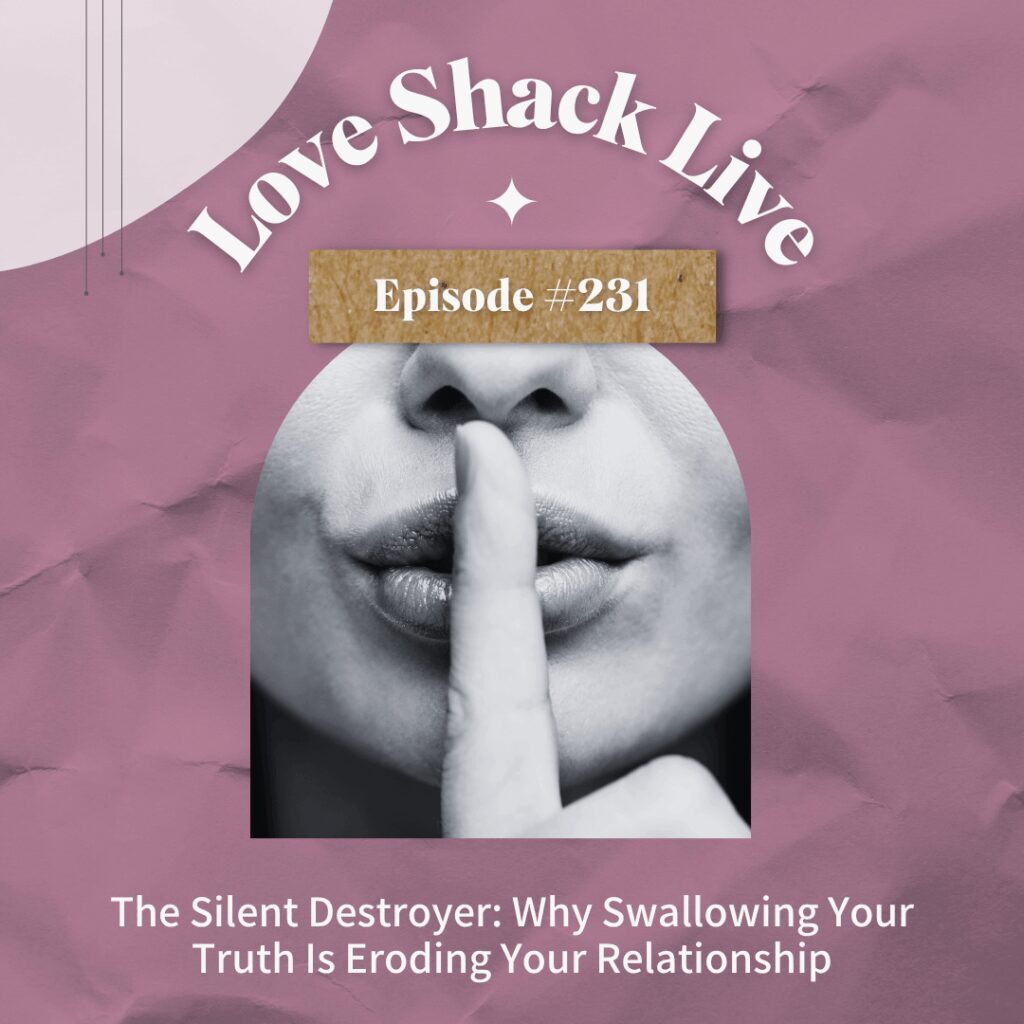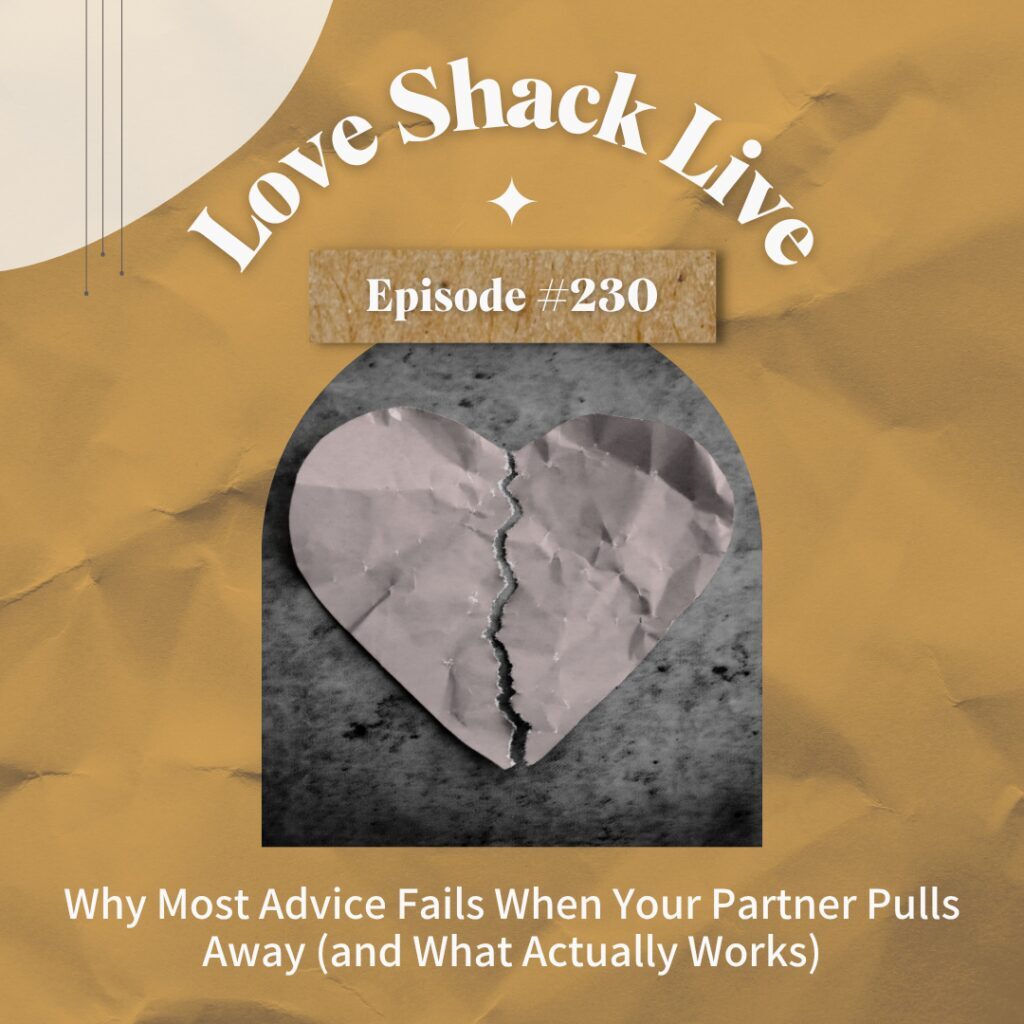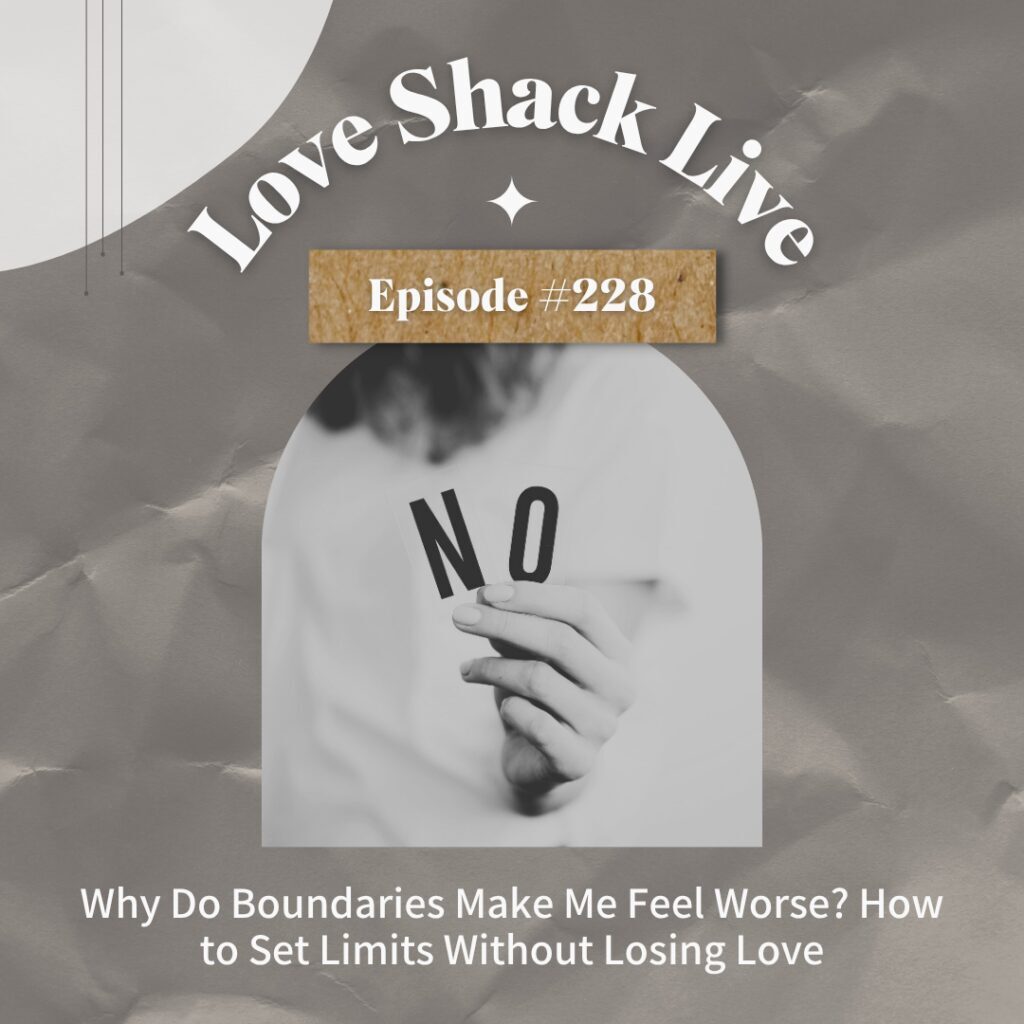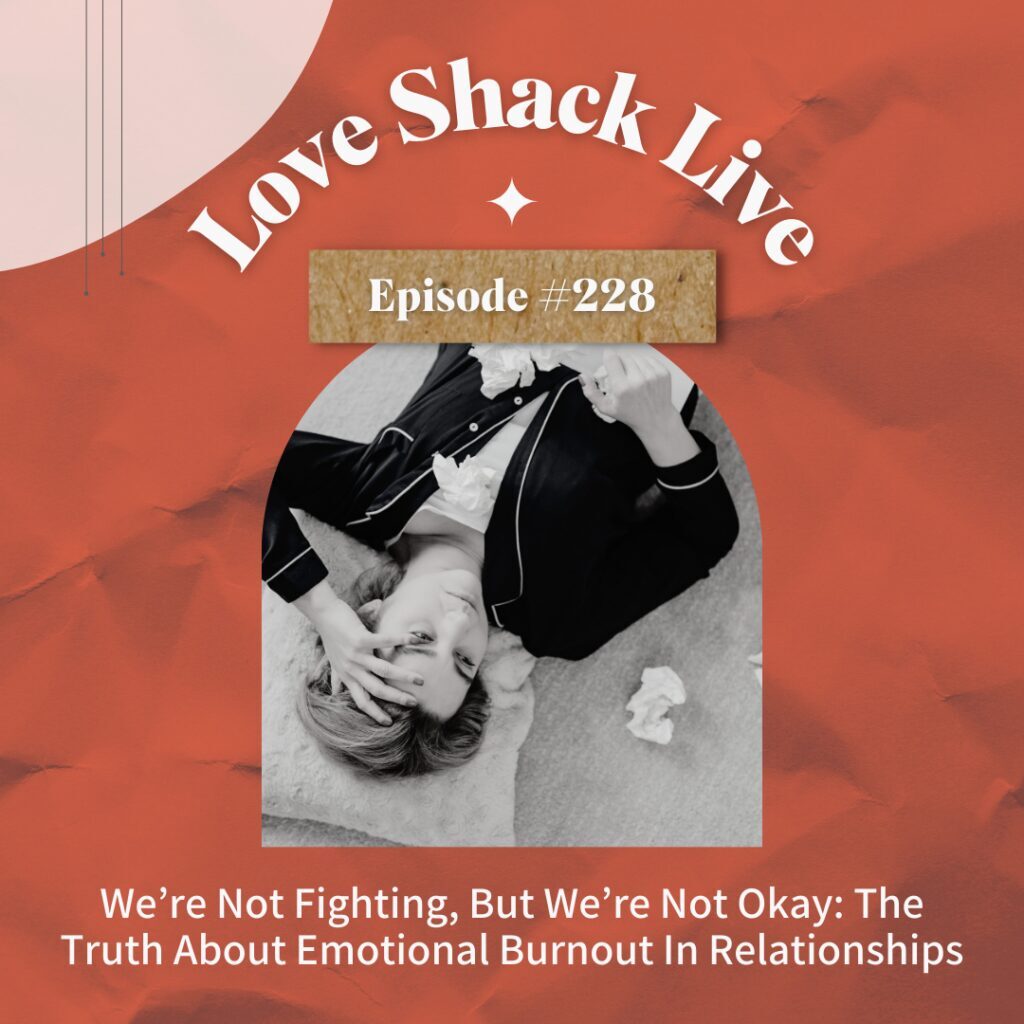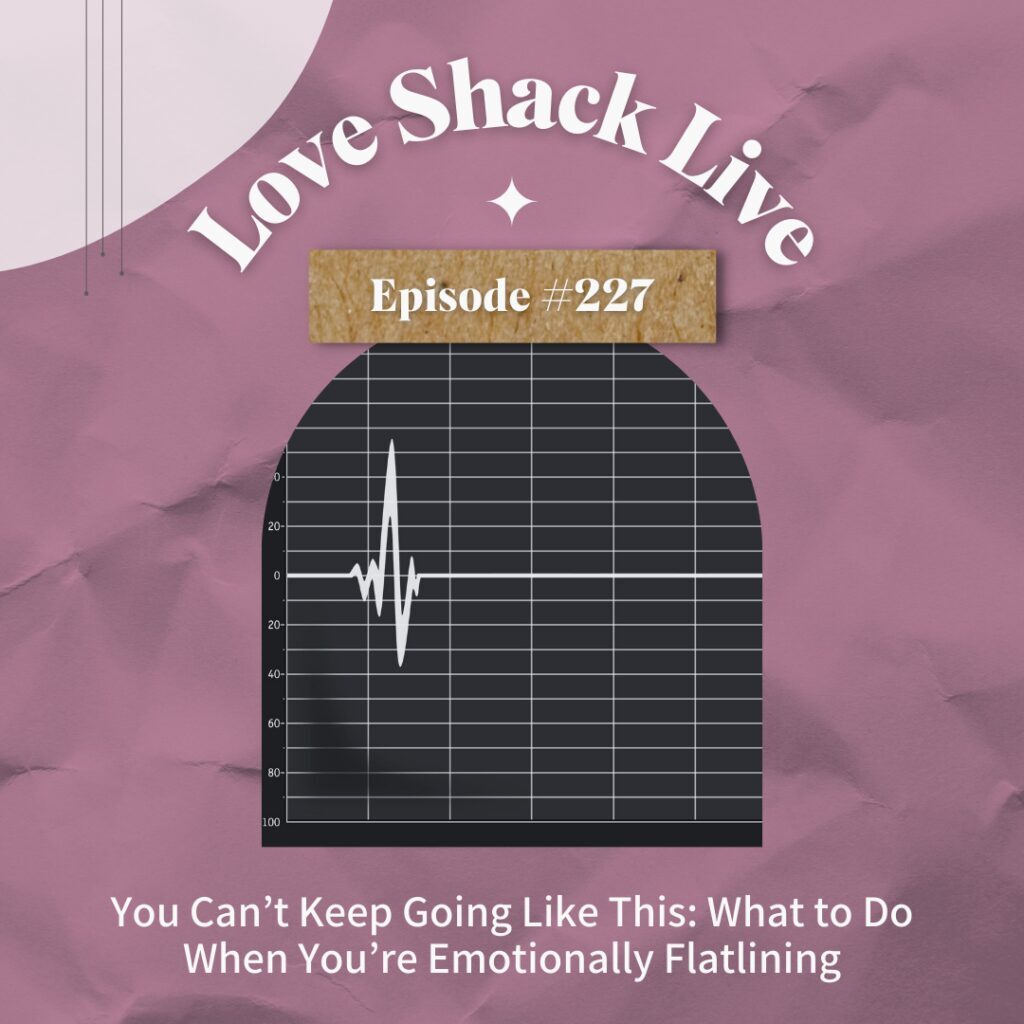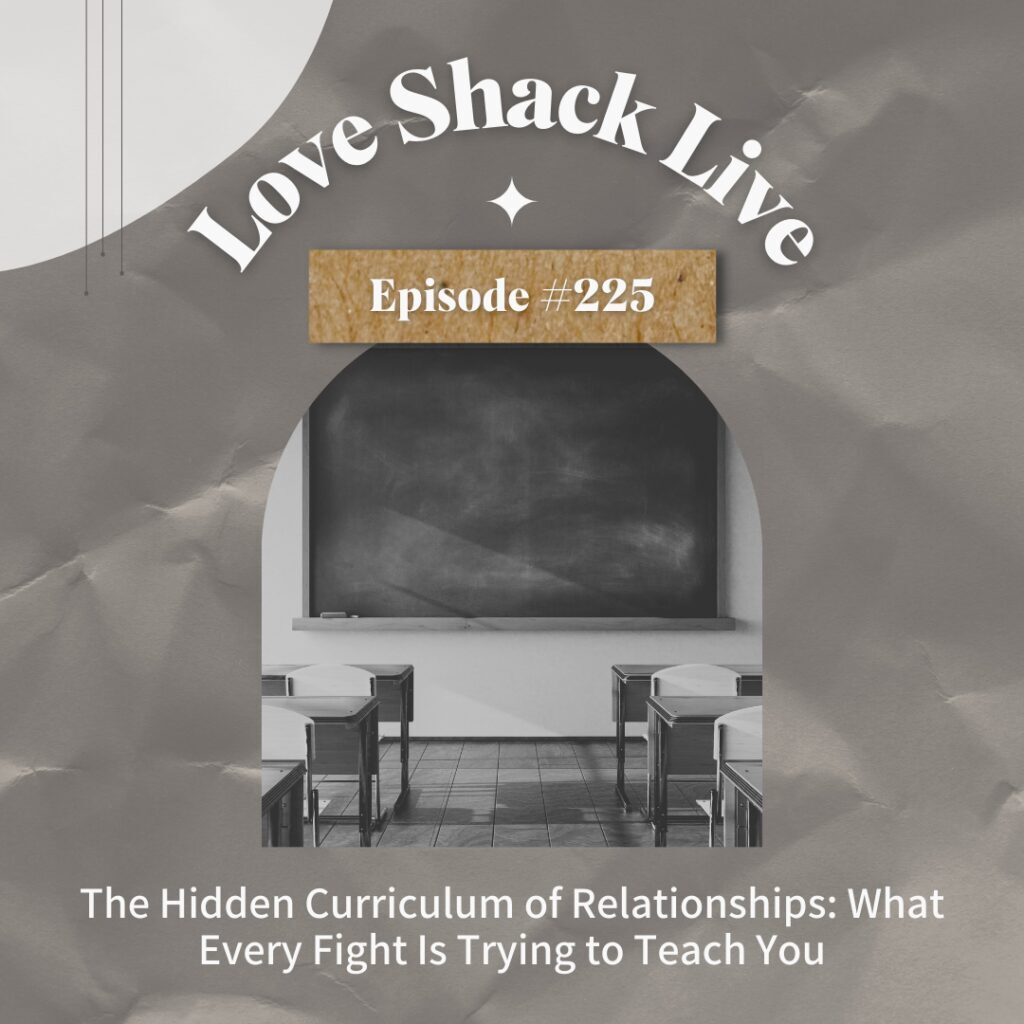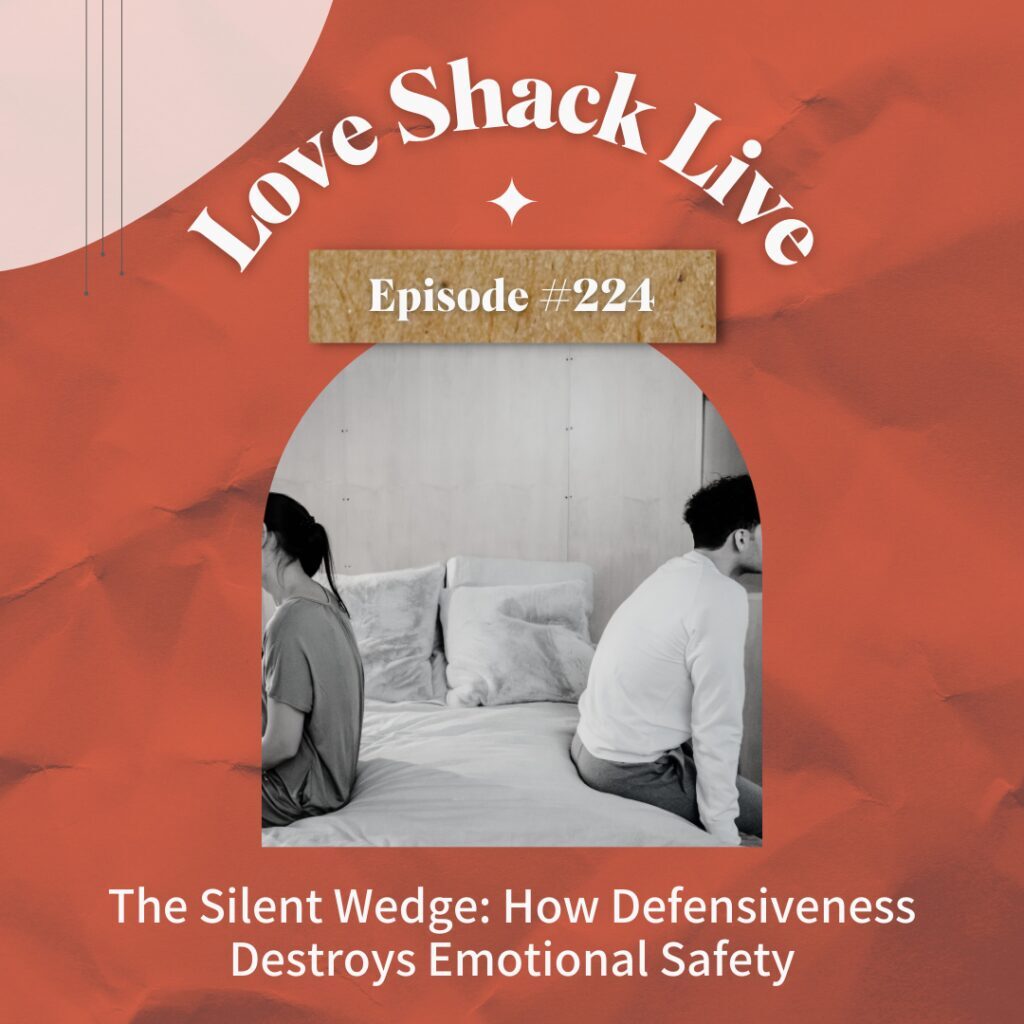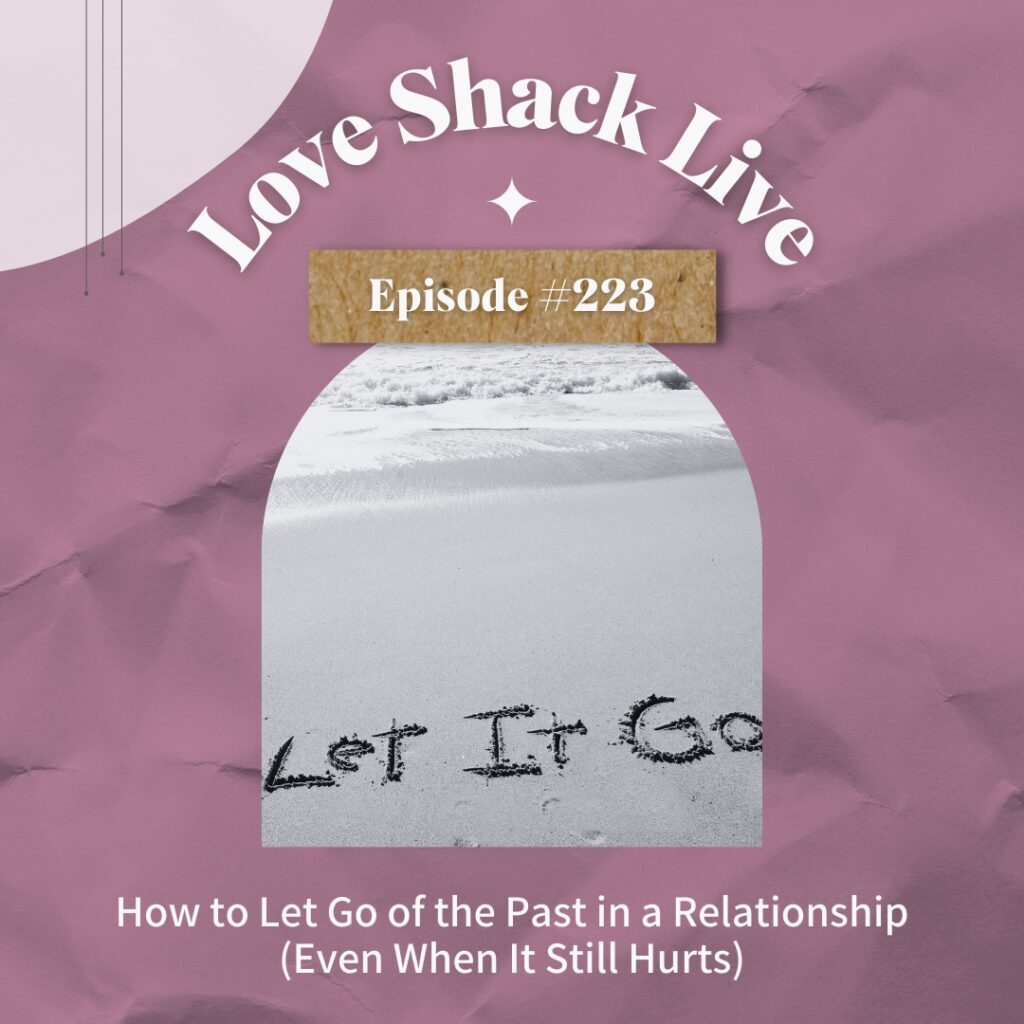#187: Is Blame Destroying Your Relationship? Here’s What to Do Instead
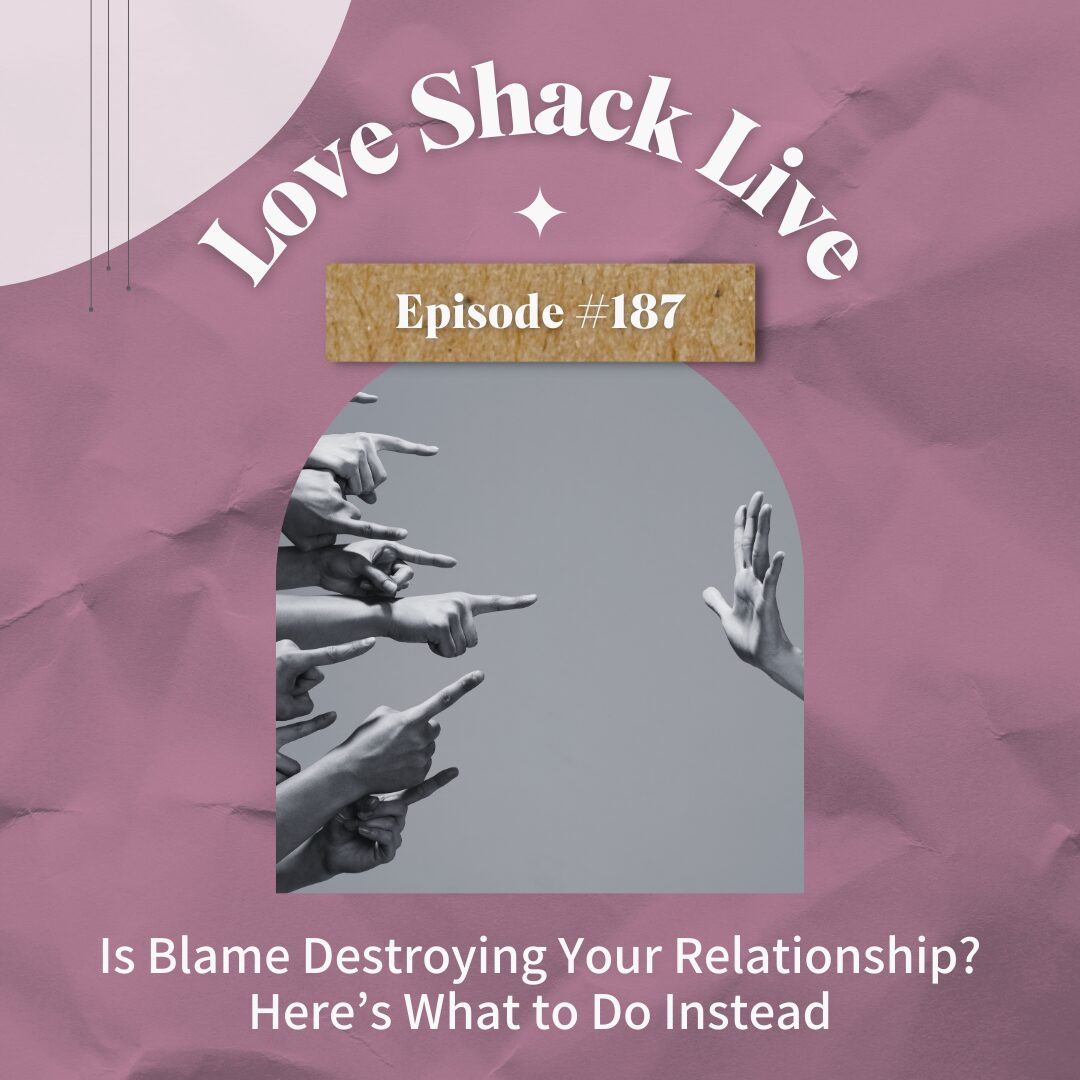
Breaking the Blame Game: How to Transform Relationship Conflict into Connection
Do you find yourself caught up in the blame game, constantly pointing fingers and feeling the strain it puts on you and your relationship? The truth is, the blame game creates emotional gaps, turning each disagreement into a struggle over who's right and who's wrong. It erodes trust, builds resentment, and leaves both partners feeling distant, emotionally drained, and misunderstood. Each accusation can stab you in the heart, making it harder and harder to find common ground and solutions.
If this resonates with you, I want you to know that you're not alone. Welcome to Love Shack Live, the podcast for listeners who find themselves at a relationship crossroads. Here, we tackle daily conflicts and emotional gaps to help you rebuild a connection that's genuine and lasting.
I'm Staci Bartley, your host, joined by my co-host and lover, Tom, and our daughter, Brooke. Together, we bring decades of experience and a personal touch to help you navigate your relationship challenges. Today, we're diving into a crucial topic: the blame game.
Understanding the Blame Game
Have you ever wondered if blaming is doing more harm than good? Is there a better way to address the underlying issues without pointing fingers? Accountability, responsibility, and intentions—all these factors play a crucial role. Shifting from blame to understanding can transform your relationship profoundly.
When we feel hurt—whether from disappointment, betrayal, or other unwanted emotions—our natural reaction is to attack, defend, punish, push away, and, yes, to blame. This reaction is modeled to us throughout our lives, both in our homes and the wider world.
The common narrative when we blame someone because we've been hurt is that they must pay for what they've done. This could mean cutting them out, pushing them out, or punishing them in some way. We think if we can identify the guilty party and make them pay, our emotional pain will be resolved.
The Emotional Cycle of Blame
When we're hurt, it's easy to believe that the other person was intentionally malicious. If you hurt my feelings, I must make you pay. However, this path only deepens our pain and perpetuates the cycle of negativity. We react more intensely, and our behavior becomes more destructive, which only continues to strain the relationship.
The first step out of this cycle is understanding that blame only feeds and perpetuates the negative emotions we're feeling. This reaction is natural, but it doesn't lead to solutions. Instead, it often results in escalating conflict, emotional distance, and, eventually, the potential collapse of our relationships.
Separation Support Bundle
Want to stop feeling terrified about what your partner’s request for space means? Not sure where to begin?
Shifting to Understanding
When we focus on identifying and addressing our emotional drivers, we can start to shift our approach. Here are some practical steps you can take:
1. Pause and Reflect: When emotions run high, take a step back. Pause and reflect on what's happening emotionally. Blaming each other won't help; understanding will.
2. Express Your Feelings Constructively: Focus on what you're feeling and articulate it. Instead of attacking your partner, share why you feel hurt and what impact it has on you.
3. Seek Common Ground: Instead of pointing out each other's faults, work towards understanding where each of you is coming from. What beliefs or past experiences are influencing your emotions?
4. Advocate for Your Needs: Clearly communicate what you need to feel understood and supported. This could be reassurance, acknowledgment, or a simple change in behavior.
5. Embrace Patience and Compassion: Allow space for your partner to express themselves and give yourself time to process emotions before reacting.
Practical Strategies to Move Forward
If you find it difficult to let go of blame, try venting your emotions in a healthy way. Journaling, exercising, or even screaming into a pillow can help you release pent-up frustration, allowing you to approach the conversation with a clearer mind.
When engaging in conversations with your partner, use phrases like:
- "Help me understand what you're feeling right now."
- "Can you explain why you're so upset?"
- "What comes up for you when this happens?"
These questions show your partner that you're invested in understanding their perspective, paving the way for a more meaningful dialogue.
Final Thoughts and Practical Tips
Resources mentioned in this episode:
- Better Love Club: Access unlimited resources, workshops, and a supportive community to deepen your relationship skills. Explore the club.
- Relationship Conversation Cards: Enhance your communication and deepen your connection with our Relationship Conversation Cards. stacibartley.com/cards
